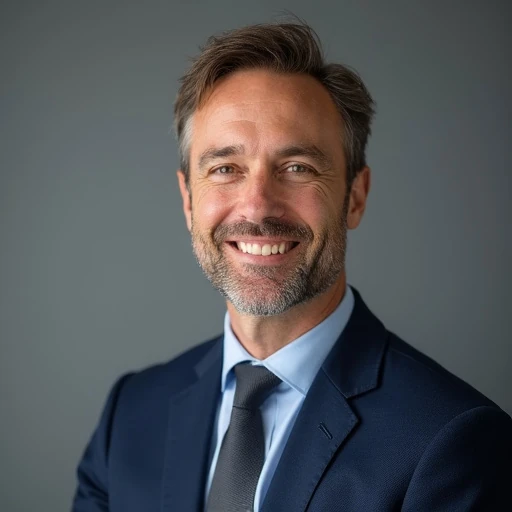The Korea Investment Corporation (KIC), which oversees a $210 billion portfolio, is re-evaluating its real estate investment strategy following a period of underperformance compared to other assets. The sovereign wealth fund is considering a more flexible "total portfolio approach" to navigate market challenges and improve returns, according to a senior executive.
Speaking at the PERE Seoul conference, Sean K Lee, KIC’s deputy chief information officer, outlined the fund's response to the widening performance gap between its real estate holdings and its public equity investments. While no drastic cuts to the overall real estate allocation are planned, the fund is set to make significant changes within the asset class.
Key Takeaways
- KIC's real estate returns have lagged behind public equities, which saw an 18.83% return in 2024.
- The fund is considering a shift from strategic asset allocation to a more flexible "total portfolio approach."
- KIC plans to increase its investment in core and core-plus real estate, moving away from its current focus on opportunistic strategies.
- The fund will use the secondaries market to acquire discounted traditional assets and is also targeting niche sectors like data centers and life sciences.
- Despite challenges, KIC maintains a positive, contrarian view on the U.S. real estate market.
Performance Gap Prompts Strategic Review
Recent performance figures have highlighted a significant disparity in returns for the Korea Investment Corporation. According to its 2024 annual report, public equities delivered a strong 18.83 percent return for the year. In contrast, the fund's alternative investments have shown mixed results over the long term.
Since their inception, private equity investments have generated an annualized return of 9.41 percent. However, real estate and infrastructure have produced a lower annualized return of 6.83 percent. This underperformance has prompted KIC's leadership to reassess how real estate fits into its broader investment framework.
Understanding KIC's Portfolio
The Korea Investment Corporation manages over $200 billion in assets for the South Korean government. Alternative investments constitute 22 percent of its total portfolio. Within this alternatives sleeve, real estate and infrastructure together account for approximately 25 percent of the allocation.
Sean K Lee, who heads the alternative investment division, described the performance gap as a "major challenge" for his team. He explained that a traditional strategic asset allocation model would logically suggest a substantial reduction in real estate holdings, a move the fund is hesitant to make due to its scale.
A Shift to a Total Portfolio Approach
To address this challenge, KIC is seriously considering a move toward a total portfolio approach (TPA). This method offers greater flexibility than a rigid strategic asset allocation model, which sets fixed percentages for different asset classes.
Lee stated that a TPA would allow the fund to be more agile. It enables the investment team to focus more on overall returns and evaluate real estate opportunities on an asset-by-asset basis when deciding where to allocate capital. This approach facilitates a more dynamic response to changing market conditions.
"Adopting a total portfolio approach would allow for greater flexibility, enabling the investor to focus more on returns and evaluate real estate investments on an asset-by-asset basis," Lee explained during the keynote panel.
Despite this potential shift in methodology, Lee confirmed that KIC does not plan to make dramatic changes to its overall real estate allocation. With a portfolio exceeding $200 billion, any large-scale shift could have a significant and potentially disruptive impact on its overall performance.
New Focus on Core Assets and Niche Sectors
While the total allocation to real estate may remain stable, the strategy within the portfolio is set for a significant overhaul. KIC is aiming for a target return of G7 inflation plus 3 percent, which currently translates to a goal of 7-8 percent.
To achieve this, the fund plans to increase its exposure to core and core-plus real estate. This marks a departure from its current strategy, where more than 50 percent of its real estate portfolio is invested in higher-risk opportunistic and value-add strategies.
Targeting Traditional and Niche Assets
The shift will focus on traditional asset classes that have faced recent headwinds but are expected to recover over the long term.
"We want to have more allocation to core and core-plus, especially when we think about the core traditional assets, like office and retail," Lee noted, expressing confidence in their long-term recovery.
KIC plans to leverage the secondaries market to execute this strategy. Lee identified this as a key opportunity to acquire stakes in core funds and discounted traditional assets from other institutional investors who may be facing liquidity pressures.
- Secondaries Market: KIC has already made commitments to real estate secondaries and plans to increase its activity in this area.
- Niche Markets: The fund is also exploring specialized sectors such as data centers, life sciences, and purpose-built student accommodation, primarily in Europe and the United States.
For highly specialized assets like media studios, KIC will continue to rely on the expertise of its general partners. However, for more conventional core assets, the fund is prepared to take a more direct investment approach.
Navigating a Challenging Macro Environment
In the current high-interest-rate environment, KIC is adopting a cautious stance on leverage. Lee explained that the fund is hopeful for interest rate cuts but acknowledged the uncertainty surrounding their timing and magnitude.
"Right now, I think that we would be better to have lower leverage [for its investments]," Lee said. In some instances, KIC is choosing to acquire assets with 100 percent equity, preferring to wait for more stable financing conditions before adding debt.
A Contrarian View on the U.S. Market
Despite widespread uncertainty, Lee shared a decidedly positive and contrarian view on the United States, the world's largest real estate market. He affirmed KIC's continued belief in the resilience of the U.S. economy and its active investment presence there.
He suggested that the prevailing negative sentiment among other investors could actually reduce competition, thereby making investments less risky. This perspective was summarized in a memorable remark:
"If everybody thinks something is a risk, it’s not a risk."
Additionally, Lee mentioned that the appreciation of the U.S. dollar over the last three years may lead to some portfolio rebalancing. With signs of economic recovery in Europe, KIC will look to create more diversified exposure between the two major regions going forward.





